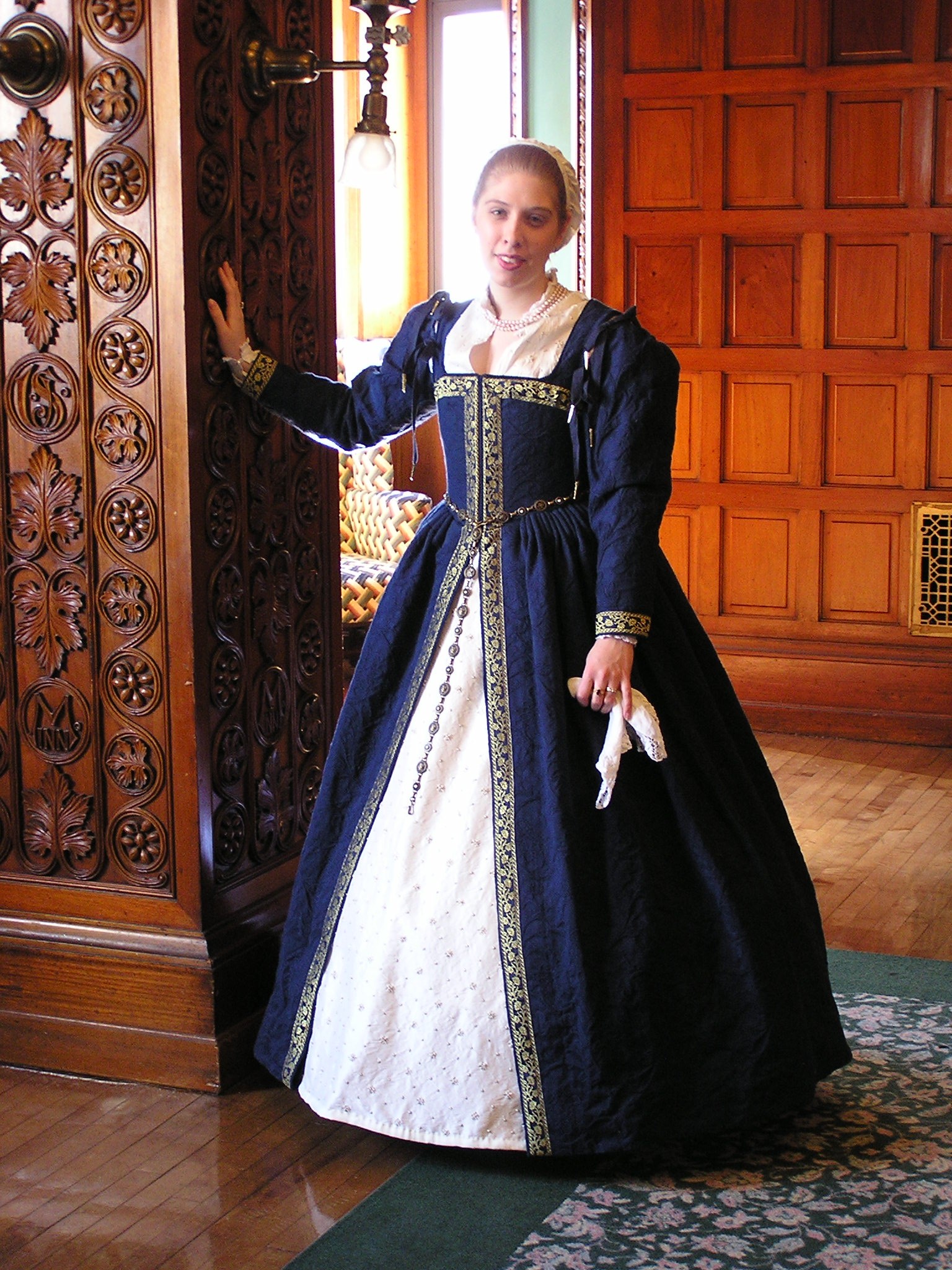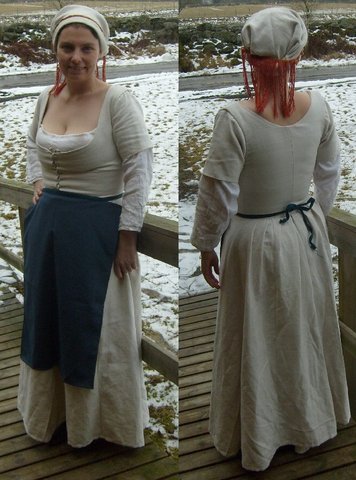Difference between revisions of "Kirtle"
| Line 13: | Line 13: | ||
*[https://www.reconstructinghistory.com/rh002-15th-century-womens-kirtle-sleeves.php?s=&c=22&d=29&q=1&p=71&w=21 Pattern of A 15th century kirtle with sleeves] | *[https://www.reconstructinghistory.com/rh002-15th-century-womens-kirtle-sleeves.php?s=&c=22&d=29&q=1&p=71&w=21 Pattern of A 15th century kirtle with sleeves] | ||
[[Category:Garb]] [[Category:Garb Undergarments]] | [[Category:Garb]] [[Category:Garb Undergarments]] | ||
| + | [[Category:European Garb]] [[Category:Women's Garb]] [[Category:Dress]] | ||
Revision as of 22:22, 11 April 2009
The kirtle is sort of a general purpose under-dress. In European fashions it is worn over the bodies and petticoat, and under the gown or over dress. Lower class women wore kirtles as an outer dress over their chemise. Kirtles were part of fashionable attire into the middle sixteenth century, and remained part of country or middle-class clothing into the seventeenth century.

In different time periods the kirtle would change shape slightly, but endured as the most consistent item of clothing for women crossing obstacles of class and creed.
Kirtles could be loose garments without a waist seam, or could be made as a combined bodice and petticoat, depending on their use and the current fashion. Kirtles typically laced up the back or side-back, especially when worn under front-lacing gowns as in sixteenth century Germany and the Low Countries. Kirtles from the 12-14th century typically has short sleeves and were worn with decorative sleeves of a different color and fabric pinned on.
